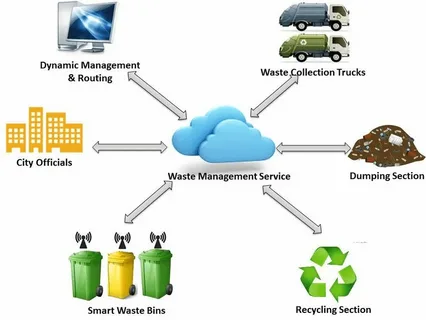Sustainable urban living has become an imperative necessity in our rapidly urbanising world. With more than half the global population residing in cities, how we design, develop, and inhabit urban spaces has profound implications. Sustainable urban living offers a holistic approach in addressing pressing issues such as climate change, resource depletion, and social equity. By adopting environmentally friendly practices, renewable energy sources, and resilient infrastructure, cities can mitigate their ecological footprint. This enhances their capacity to withstand climate-related challenges. Embracing sustainable urban living is vital for creating livable, resilient, and inclusive cities that ensure a sustainable future for future generations. Read on to know more about zero carbon city and its impact on sustainable urban living.
Zero Carbon City Concept
The concept of a zero carbon city embodies an ambitious vision for urban development that aims to eliminate carbon emissions and promote sustainable living. It envisions cities that operate on renewable energy sources, utilise energy-efficient technologies, and adopt environmentally friendly practices across all sectors.
The commitment to decarbonising energy production is at the heart of the zero carbon city. This involves transitioning from fossil fuels to renewable sources such as solar, wind, and hydroelectric power. Renewable energy infrastructure is integrated into the city’s grid, powering buildings, transportation systems, and other urban functions. Energy-efficient technologies like smart grids, LED lighting, and advanced building insulation are also deployed to optimise energy consumption and reduce wastage.
Transportation is a key focus in achieving zero carbon emissions. Zero Carbon Cities prioritise sustainable modes of transport, such as electric vehicles, and efficient public transit systems. By promoting these alternatives and reducing private car usage, cities can reduce air pollution, congestion, and greenhouse gas emissions.
In a zero carbon city, urban planning emphasises compact, mixed-use developments with easy access to amenities, reducing the need for long commutes. Green spaces and biodiversity are also prioritised, improving air quality, providing recreational areas, and supporting wildlife habitats.
Beyond energy and transportation, zero carbon city extends to waste management, water conservation, and sustainable building practices. Waste is minimised through recycling, composting, and waste-to-energy conversion, while water is conserved through efficient irrigation, rainwater harvesting, and wastewater treatment.
The benefits of a zero carbon city are numerous. By eliminating carbon emissions, these cities contribute significantly to mitigating climate change and reducing air pollution, improving public health outcomes. Additionally, the transition to renewable energy creates new job opportunities and stimulates economic growth in the green sector.
Impact of Zero Carbon City on Sustainable Urban Living
The impact of a zero carbon city on sustainable urban living is profound and wide-ranging. By prioritising renewable energy sources and energy-efficient technologies, these cities significantly reduce their carbon footprint and mitigate the effects of climate change. This transition leads to improved air quality, reduced pollution-related health risks, and a healthier living environment for residents.
Zero Carbon Cities also promote sustainable transportation systems. By emphasising walking, cycling, and efficient public transit, these cities reduce reliance on private vehicles, alleviating traffic congestion and improving mobility. This shift reduces carbon emissions and enhances the overall livability of urban spaces, creating pedestrian-friendly environments and reducing noise and air pollution.
In addition, Zero Carbon Cities prioritise sustainable building practices. Energy-efficient buildings with advanced insulation, green roofs, and solar panels reduce energy consumption, provide comfortable living spaces, and lower utility costs for residents. These cities also encourage using sustainable materials, promote recycling and waste management, and incorporate green spaces. This enhances their inhabitants’ overall quality of life and well-being.
Begin With Zero Carbon City Concept Today
Embracing the zero carbon city concept today is a crucial step towards building sustainable, resilient, and livable urban environments for the future. By transitioning to renewable energy sources, promoting sustainable transportation, and adopting energy-efficient building practices, we can mitigate climate change. This improves air quality and enhances our cities’ overall quality of life. To embark on this transformative journey, connect with a dedicated service provider who can help develop a tailored strategy for your community or organisation.

